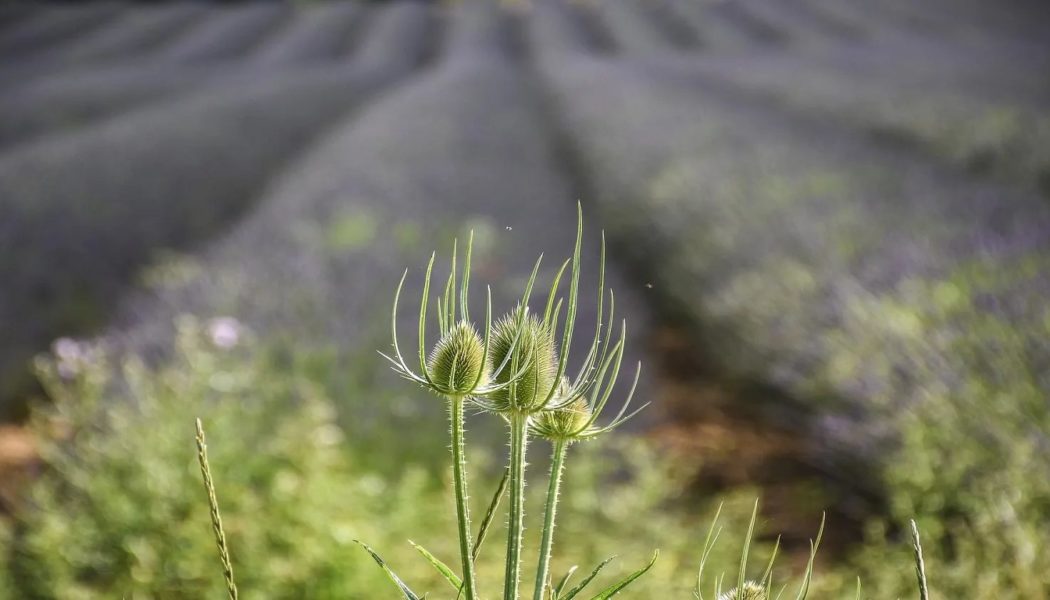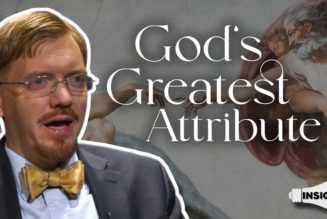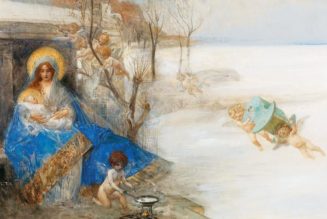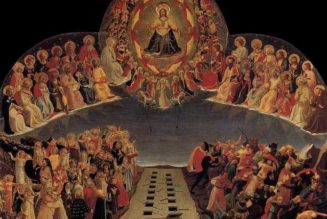
Last week Jesus told his great Parable of the Sower, and we saw how good seed failed on bad ground, but how good soil was receptive and fruitful. A happy ending, right?
Not yet. Jesus tells us that the Sower’s sprouts aren’t out of the weeds yet, on the 16th Sunday of Ordinary Time, Year A.
This Sunday’s Gospel reading, in fact, is commentary on the Church today.
Once again, Jesus gives a parable to the people and an explanation to the Apostles.
- He tells the people: “The kingdom of heaven is like a man who sowed good seed in his field. While everyone was asleep his enemy came and sowed weeds all through the wheat.”
- Later, he explains: “He who sows good seed is the Son of Man, the field is the world, the good seed the children of the kingdom. The weeds are the children of the evil one, and the enemy … is the devil.”
The kingdom of God is the Church, and here in the Church we have the wheat and the weeds, side by side, benefiting from the same good soil: the good, fruitful and the nourishing along with the bad, parasitic, and poisonous.
But don’t make the mistake that there are purely evil or purely good people. As Russian author Aleksandr Solzhenitsyn said, “The line between good and evil runs not through states, nor between classes, nor between political parties either — but right through every human heart.” There is weed and wheat in all of us.
In fact, Matthew follows this Sunday’s Gospel passage immediately with the parable of the Treasure in the Field, suggesting we can all start drawing the right thing out of the soil if we would just be attentive and committed.
But Sunday’s parable continues:
- Jesus tells the people: When his slaves want to weed the field, the Sower says not to, explaining, “You might uproot the wheat along with them. Let them grow together until harvest.”
- To the apostles, he later explains the harvest to come “at the end of the age”: “The Son of Man will send his angels and they will collect all those who cause others to sin and evildoers. They will throw them into the fiery furnace.”
This is good news for all of us but it could quickly become bad news for any of us. The good news is that we have time ahead to go from weed to wheat — from a parasite to a producer. But we need to repent, watch and pray. The consequences of failure are dire. As Pope Francis put it, “If you do not take care of your heart, you always live far away from the Lord … and there is the danger of continuing in this way, far away from the Lord for eternity. This is very bad!”
Extremely bad. Infernally bad.
What will happen to the weeds, according to Pope Francis? “The proud, rich and powerful will end up condemning themselves and plunging into the eternal abyss of solitude which is hell.”
Who are the weeds, according to Jesus in Sunday’s reading? Primarily, all those who “cause others to sin.” There are many such people in the Church:
- For decades, children were not told about the Real Presence of Jesus in the Eucharist, or the truth of the existence of hell, or the need for confession. I should know. I’m one of them. This is literally a case of people in the Church (in homes, parishes, and schools) “causing others to sin.”
- Many I know and love saw their faith intentionally dismantled in Catholic colleges from teachers who taught them that the Creed wasn’t true: That God was not a “Father,” because patriarchy is bad; that Jesus did not “rise again on the third day;” that Jesus did not “ascend into heaven,” will not “come again in glory to judge the living and the dead;” and that the Holy Spirit does not give us “one, holy, catholic and apostolic Church” and there is no need for “one baptism for the forgiveness of sins.”
- And today, the media is full of reports of cardinals and newly named cardinals pronouncing Jesus wrong on one thing or another, according to archbishops and bishops. One cardinal suggests that Jesus is all wrong and out of date on sex; another that Jesus is wrong to say “Go, therefore, and make disciples of all the nations.” Doesn’t this confusion risk “causing others to sin”?
There are even reports that people who are actively re-imagining the faith of their fathers have seats at the Synod on Synodality. St. John Chrysostom said this parable speaks precisely of people in teaching positions in the Church, “For at the beginning they disguise themselves; but when they have gained much confidence, and someone imparts to them the teaching of the word, then they pour out their poison.”
So, we should tear out the weeds, right? Wrong. Well, it is absolutely true that the weeds shouldn’t be given special seats of authority. But tearing the weeds out churchwide would hurt the wheat too. People who would be on board with the Church if given the chance would get the wrong idea and we would lose them too. Think back: Tearing out the weeds altogether would have torn each of us out too.
Well, how is good supposed to win out if we just let the weeds grow?
Jesus answers that question in the next sentence of the Gospel: “He proposed another parable to them. The kingdom of heaven is like a mustard seed …”
This is the parable of the tiny seed, the “smallest of seeds” which “becomes the largest of plants,” Jesus says. Two chapters later in Matthew he will say more: “If you have faith the size of a mustard seed, you will say to this mountain, ‘Move from here to there,’ and it will move. Nothing will be impossible for you.”
The answer to the mighty weeds is the even mightier mustard seeds.
We can’t judge others’ hearts, but we should judge our own. “Think of the enemy who sowed the weeds as the devil because he wanted to be a god,” says St. Jerome. Our intellectual pride and self-assertion is the way of the weed that withers; faithful humility and obedience is the way of the mustard seed that explodes with growth.
Jesus assured us of that in the Gospel two Sundays ago, words recalled in this Sunday’s alleluia verse: “Blessed are you, Father, Lord of heaven and earth; you have revealed to little ones the mysteries of the kingdom.”
And we see a lot of mustard plants in the world today too:
- The Catholic Church is the largest charitable organization on earth, made so by “mustard seed” Catholics serving those in need on the front lines from inner cities to war zones.
- The Bible-in-a-Year Podcast and the Catechism-in-a-Year Podcast are setting records, planting countless mustard seeds nationwide.
- The remarkable growth of Newman Guide colleges like Benedictine College and college-student outreach efforts such as Focus and St. Paul’s Outreach outperform dissenting groups by miles.
- The Church in America is blessed with bishops and priests who are dedicated and focused on doing the will of Jesus Christ, Francis X. Maier told Benedictine’s Symposium on Transforming Culture.
And we can each plant a grove of mustard plants in the world with our daily rosaries, our daily corporal and spiritual works of mercy, our Friday fasts and frequent sacrifices for the Church.
The Church’s future belongs to “little ones” who stick with the tried and true, not to the wise and learned dissenters.
In the fifth century, St. Jerome prophesied the 21st-century Church’s future when he said:
Take the “stumbling block of the cross” and “put this particular doctrine side by side with the teachings of the philosophers, their books, their splendid eloquence and fine discourses, and you will see just how small it is compared with the other seeds of the gospel plant.” But for the wise and learned, “Everything turns out weak and withering in a plant and in herbs that quickly dry up and fall to the ground. But when this tiny gospel teaching that seemed insignificant at the beginning has been planted either in the soul of the believer or throughout the world, it does not turn out to be just a plant. It grows into a tree, so that the birds of the air, which we interpret as the souls of believers or deeds dedicated to the service of God, come and dwell on its branches.”
Truly, as St. Paul says in the Second Reading, “The Spirit comes to the aid of our weakness.” And truly, as the First Reading from Wisdom tells God, “You gave your children good ground for hope and you will permit repentance from their sins.”
In the end, that is where hope lies for both the wheat and the weeds: repentance.
Our “good ground for hope” is that those who have been led astray can repent, and that those who led them astray can repent too.
The Lord himself concludes this Sunday’s Gospel with the two alternatives. The weeds go to the fiery furnace, he insists. And what about the wheat?
“Then the righteous will shine like the sun in the kingdom of their Father,” Jesus says. “Whoever has ears ought to hear.”







